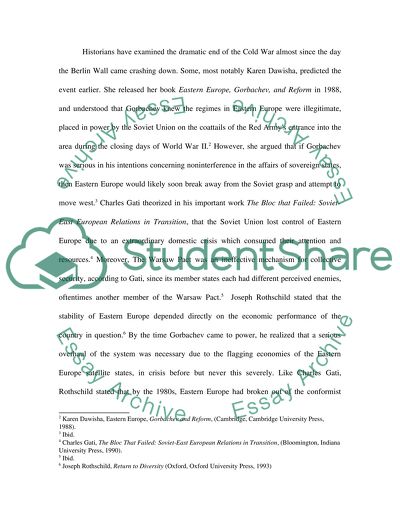Cite this document
(“End of Cold War and Collapse of Soviet Union Essay”, n.d.)
Retrieved from https://studentshare.org/miscellaneous/1530683-end-of-cold-war-and-collapse-of-soviet-union
Retrieved from https://studentshare.org/miscellaneous/1530683-end-of-cold-war-and-collapse-of-soviet-union
(End of Cold War and Collapse of Soviet Union Essay)
https://studentshare.org/miscellaneous/1530683-end-of-cold-war-and-collapse-of-soviet-union.
https://studentshare.org/miscellaneous/1530683-end-of-cold-war-and-collapse-of-soviet-union.
“End of Cold War and Collapse of Soviet Union Essay”, n.d. https://studentshare.org/miscellaneous/1530683-end-of-cold-war-and-collapse-of-soviet-union.


